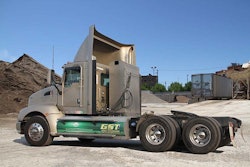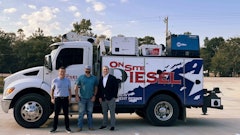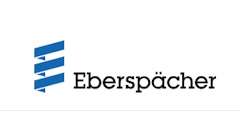Cummins Inc. announces that three of its plants in the United Kingdom and one in France are the first four sites to achieve "Zero Disposal" status, where 100% of a facility's waste is handled in a truly useful manner according to the company's waste hierarchy.
That means waste doesn't go to a landfill and can only be incinerated at a waste-to-energy facility after reasonable efforts to reduce, re-use and recycle. And then it must produce more energy than needed to merely sustain combustion.
The first four plants certified by the company as Zero Disposal are Cummins Turbo Technologies (CTT) in Huddersfield, U.K.; the Darlington Engine Plant in Darlington, U.K.; the Daventry Engine Plant in Daventry, U.K. and the Cummins Filtration Plant in Quimper, France.
"Congratulations to the leaders and employees at the sites and all the partners that made these outstanding achievements possible," says Cummins' Brian Mormino, Executive Director – Worldwide Environmental Strategy & Compliance.
"Achieving Zero Disposal status is truly a team effort that takes a commitment by many people inside and outside of the sites to develop and implement a comprehensive waste strategy," Mormino adds. "The benefits to the environment and the business of these efforts are significant."
As part of its environmental sustainability plan, the company has established a goal of increasing its overall recycling rate from about 90% in 2014 to 95% by 2020. In addition, Cummins wants to reach Zero Disposal status at 30 sites by that same year.
Collectively, the first four locations designated Zero Disposal generated almost 26 million pounds of waste in 2014 that had to be recycled or reused in some way. The four sites reported three consistent factors that were critical to their success:
- Working with suppliers to reduce or eliminate hard-to-recycle packaging.
- Adequate space to separate waste streams in preparation for re-use, recycling and composting.
- Communication with employees, which is especially important to remove the often hard-to-recycle final 1 or 2% of the waste stream such as food waste.
The sites established information boards where employees could see how their particular location was doing toward the Zero Disposal goal in addition to color-coded bins where they could place their recyclables.
All four sites also had a financial incentive to reduce, re-use or recycle in the form of taxes, fees and regulations discouraging disposal in landfills.
Cummins has a robust certification process to determine if sites are managing their waste effectively and if vendors are properly handling material both at the company location and if it leaves a Cummins site.
"We have several more sites that are very close to achieving Zero Disposal status," Mormino says. "I'm very encouraged by our start toward reaching this important goal of having 30 sites certified as Zero Disposal by 2020."

















